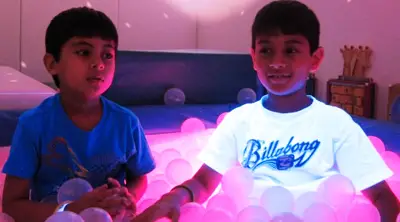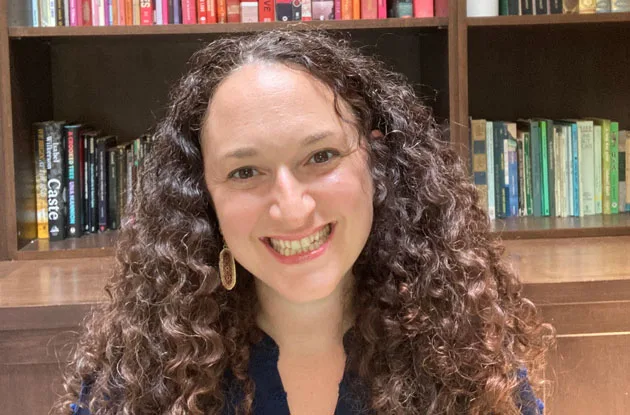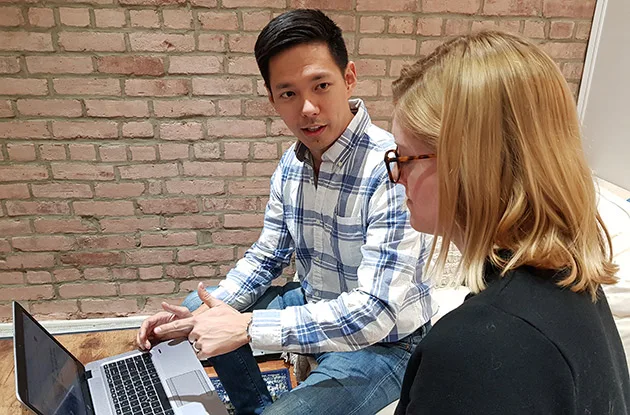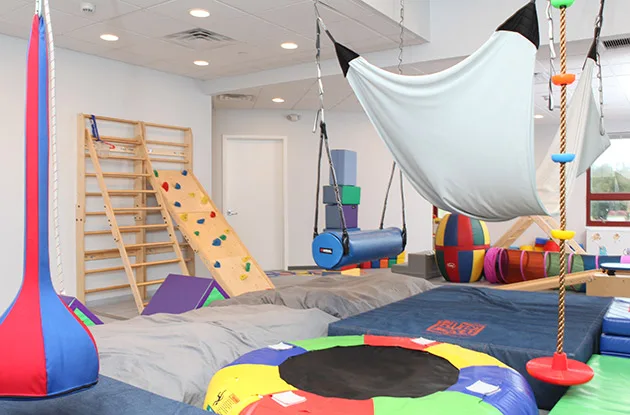WeeZee World of “Yes I Can!” is an athletic, academic, and social gym for kids of Westchester and it has launched a nonprofit to fund research of how to reduce the effects of Sensory Integration Disorders in children through clinical and therapeutic play.
WeeZee World of “Yes I Can!” is Westchester’s 16,000 square-foot, athletic, academic and social gym for kids located in Chappaqua, NY, and it has just launched its affiliate nonprofit organization, Sensory Bullets, which will conduct research aiming to reduce the effects of Sensory Integration Disorders in children through clinical and therapeutic “play” applications.
 Courtesty WeeZee World of ‘Yes I Can!’ |
“It’s time to take our work with children to that next level via a “WeeZee-Sensory Bullets” two-prong action plan,” says WeeZee founder Louise Weadock, a registered child psychiatric nurse, graduate of Johns Hopkins School of Public Health, and owner of the 27-year-old ACCESS Nursing and Healthcare Services, which is located adjacent to the WeeZee facility in Chappaqua.
“Now that WeeZee is celebrating its six month birthday, our gym is filled with children and we’re ready to roll out this important endeavor,” she added.
Weadock has spent the past 30 years researching Autism Spectrum Disorders and Sensory Integration Disorders. She reports that creating a hybrid organization with its own nonprofit to research the equipment featured at WeeZee (launched almost six months ago on May 1) “has always been part of the master plan.”
She says her vision for WeeZee is for its gym to provide an optimum setting for observing children at play on various equipment and for this to serve as the core of all clinical and social research to be conducted there
Weadock’s official mission for Sensory Bullets is to “create and procure equipment that provides sensory experiences for children of all ages that enhances relationships at a neurological, guttural, cognitive and social level.”
Weadock reports that Sensory Bullets will aim to:
- Offer Research Grants to academic and medical institutions to determine ASD baselines and to determine “sensory effectiveness of sensory equipment on cognitive performance of children predisposed and currently diagnosed with a CNS-SI Learning Disorder as observed in Activities of Daily Living, academics, athletics, performing arts and community (playground/family politics).”
- Provide Training and Education to professionals, caregivers and families
- Award Academic, Service or Program Scholarships to deserving children who are on track with a current Independent Education Plan.
Sensory Bullets Board president, Virginia Thomas said that student interns and volunteer research assistants will be key to conducting a wealth of research and building a bank of data that aims to “create new tools, new programs, and innovative equipment. We will utilize evidence based practice to increase the scientific body of knowledge for children along the autism spectrum.”
Thomas, a registered nurse with more than 10 years of clinical and administrative experience, says, “The potential we have for making an impact on the lives and learning of all children via Sensory Bullets is huge. We’re planning to develop partnerships with a number of organizations and this will help us conduct more in-depth research that can be a critical factor to developing and creating equipment that will benefit children and families all across the board.”





















